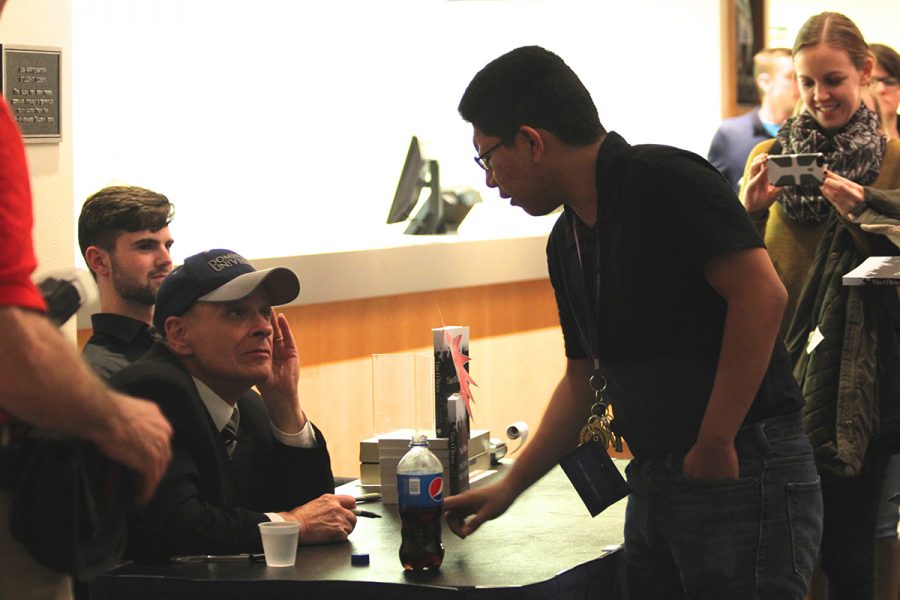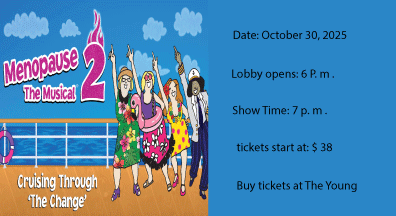Veteran, author receives Chancellor’s literary award
photo by Kim Gilliland / Photo Editor
Tim O’Brien, Veteran and author of The Things They Carried interacts with a student during his book signing after accepting the Chancellors Literary award on Mon Nov. 7. O’Brien also spoke to students in Young Auditorium.
November 9, 2016
Award-winning author Tim O’Brien told a crowd of students and faculty on Monday, Nov. 7 that he has learned to hate the Fourth of July and how our culture tends to celebrate killing people.
“Killing people is terrible,” O’Brien said. “I find it sickening to celebrate that, it’s disgusting. How about we celebrate something else, like the fact that we all get to vote?”
O’Brien wrote the best-selling war novel “The Things They Carried.” This fiction book is based on real events from his time serving in the U.S. Army during the Vietnam War.
UW-Whitewater offered O’Brien the Chancellor’s Literary Award at 7 p.m. on Nov. 7 in the Young Auditorium.
Before O’Brien was introduced, many veterans in the crowd were asked to stand up, and were regarded with thunderous applause.
“I thought it was really cool for O’Brien to come speak on campus,” freshman Johnny Pierson said. “I read his book in high school and this semester.”
Pierson said he thought the fact that O’Brien hated war was shocking.
“I’m definitely glad I came,” Pierson said. He was one of many students to wait in line to have O’Brien sign their copy of his book.
Chancellor Beverly Kopper said O’Brien’s novel “transcends time and is a gripping novel. Once you start reading, you can’t put it down.”
The decision to offer the award to O’Brien was made months ago, in May, Assistant Dean of the College of Letters & Sciences, Susan Johnson, said.
“This book has touched the lives of so many people,” Johnson said.
One of those lives is the father of a young woman who once wrote a 100-page letter to Tim O’Brien.
The girl who wrote the letter was 22, and she recounted how her parents’ troubled marriage was saved because her father read O’Brien’s novel. She had been assigned to read “The Things They Carried” in her senior year of high school, and left it on the end table in the living room after school. Her father discovered and read a few pages of the book, and for the first time in her life, her father spoke at the dinner table—about the things that he carried with him while serving in Vietnam.












